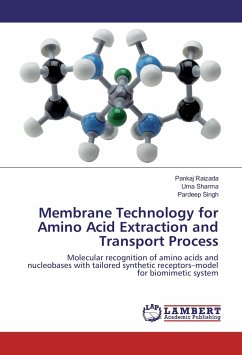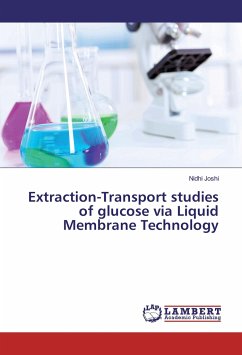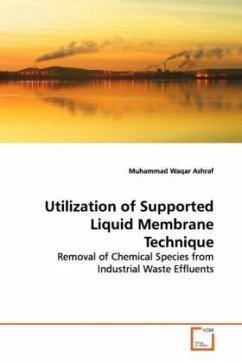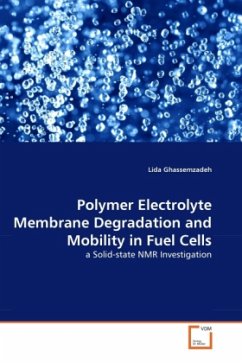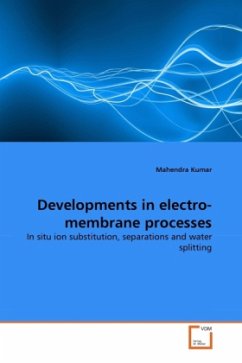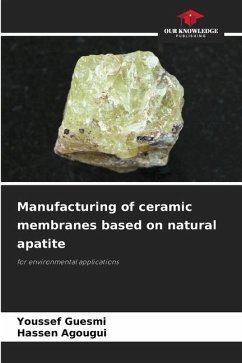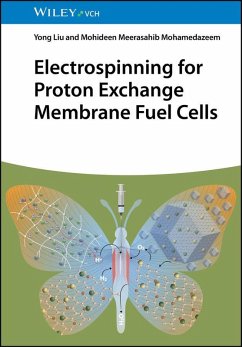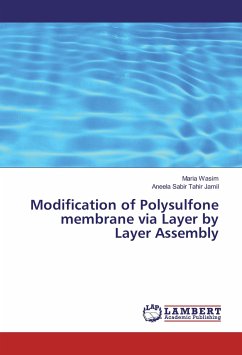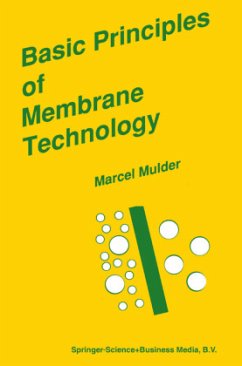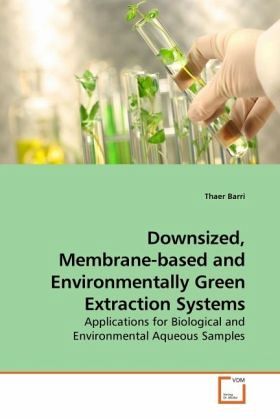
Downsized, Membrane-based and Environmentally Green Extraction Systems
Applications for Biological and Environmental Aqueous Samples
Versandkostenfrei!
Versandfertig in 6-10 Tagen
32,99 €
inkl. MwSt.

PAYBACK Punkte
16 °P sammeln!
Current analyte extraction and preconcentration procedures consume large quantities of often toxic organic solvents. These hazardous solvents have impacts on user health and surrounding environment, and thus considered human and environmentally unfriendly. Therefore, there has been an increasing demand for developing solventless extraction approaches,rendering techniques more environmentally benign. To pursue this objective, miniaturization of the extraction procedures deemed necessary as it promotes hyphenation and automation, which leads to drastic decrease in solvent quantities used and lab...
Current analyte extraction and preconcentration procedures consume large quantities of often toxic organic solvents. These hazardous solvents have impacts on user health and surrounding environment, and thus considered human and environmentally unfriendly. Therefore, there has been an increasing demand for developing solventless extraction approaches,rendering techniques more environmentally benign. To pursue this objective, miniaturization of the extraction procedures deemed necessary as it promotes hyphenation and automation, which leads to drastic decrease in solvent quantities used and labor work. This book, with more than 370 references, sheds light on techniques developed so far that are based on downsized liquid, solid, polymeric extraction phases. The book particularly focuses on miniaturized membrane-based extraction, the applicability of which for analyte preconcentration and speciation has been experimentally investigated. The membrane-based extraction techniques are of importance not only for analytical chemists, but also for laboratory technicians working in fields such as environmental science, food chemistry, biochemistry, toxicology, metabolomics, and others.




